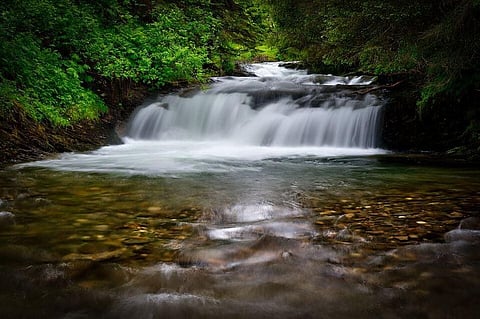
- Home
- NewsGram USA
- India
- न्यूजग्राम
- World
- Politics
- Opinion
- Entertainment
- On Ground
- Culture
- Lifestyle
- Economy
- Sports
- Sp. Coverage
- Misc.
- NewsGram Exclusive
- Jobs / Internships
- Interview

By Dr. Bharti Raizada, Chicago
Science says that water bodies are not living entities, as water does not need food, does not grow, and reproduce. Water is required for life, but in itself it is nonliving.
However, many cultures across the globe believe that rivers are living beings or Gods/Goddesses and they just take the form of water bodies.
The Maori tribe in New Zealand considers the Whanganui River as their ancestor and the Maori people fought to get it a legal status as a living being. In 2017, a court in New Zealand gave this river the status of living being and same rights as humans, to protect it from pollution. Thus, now if someone pollutes in it then it is considered equivalent to harming a human.
Rivers are sacred in many religions, including Hinduism. Image courtesy: Dr. Bharti Raizada
Rivers are sacred in Hinduism also. Hindus believe that the Ganga descended from heaven and call her Ganga Maa. A few days after New Zealand's court decision, Uttarakhand high court in India gave the Ganga and Yamuna rivers and their tributaries the status of living human entities. The Court-appointed three officials as legal custodians. However, the court did not clarify many aspects related to this decision.
After this verdict some of the questions, which naturally came to mind, were:
Can Hindus still do rituals of flowing ashes, leaves, flowers, diyas in river or no? Can a dam be built on the river after this judgment? If some damage, to a person, animal, plants, or property, occurs because of river e.g. overflow, hurricanes, flooding etc., how the river will pay the liabilities? What if all rivers, oceans, ponds etc. are given the status of living beings? Will drinking water from river become a crime? What about taking water and using it for routine needs, agriculture or building structures? Will it be illegal? If a child throws a stone in water, will it be a criminal act? Will fishing be considered stealing? What about boating? If someone is using heat near water and water evaporates, is it equal to taking the body part of a human being? What about taking a bath in the river?
If the river gets a living status, as human, then we cannot use it for anything without its permission, so everyone has to stop touching the water. Image courtesy: Dr. Bharti Raizada
Other queries, which arise, are:
Will animals and plants get the same status? What if you kill an ant or a chicken etc. or cut a tree? Will all animals and plants get a legal custodian?
Where is all the waste supposed to go? It has to go somewhere back in nature, right?
Uttrakhand state government challenged the judgement in Supreme Court and the latter reversed the judgment.
So where do we stand? In my opinion, granting living status to nature is a different thing than giving protected status or preserving nature. Image by Dr. Bharti Raizada
Ecuador's constitution recognized the Right of Nature to exist, specifically Vilcabamba river, in 2008.
Then Bolivia passed the law of the right of mother earth and granted Nature equal rights as humans.
Many communities in the U.S.A. passed the Right of Nature law.
These laws are creating a dilemma or quandary also, as people need to use these resources. We cannot live without using natural resources. However, there is a difference between using natural resources and afflicting or destroying these. So, please use natural resources very diligently. Try not to vitiate nature.
On World Water Day (March 22), please start taking care of rivers, so that there is no need for future celebrations. It should not be a one-day celebration anyway, we should scrupulously look out for nature all the time.
Dr. Raizada is a practicing anesthesiologist.
